|
A year ago, I left choir practice on a chilly March night, knowing I might not be back in church for a while, that I’d likely miss the lilies of Easter and maybe even the end-of-year potluck suppers. But I never dreamed I wouldn’t step into my church, or my gym, or into an airplane for a year. And what a year it’s been. We at The Conversation hope we have in some small ways helped you navigate it. Today, we offer you more fact-based stories that take stock of where we are in this pandemic – and where we may go next. These include stories about how scientists are working to update vaccines as coronavirus variants emerge and prepare for another potential outbreak next winter as well as the next pandemic. We thank you for being a loyal reader, and we hold you close in our hearts and minds as we continue to work to deliver stories that can
make a difference for you.
|
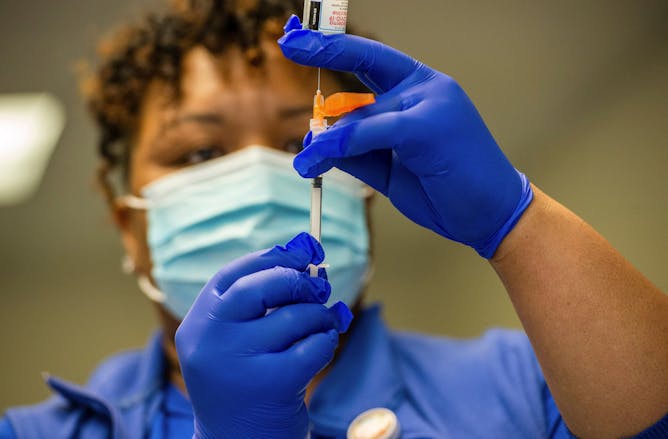
Nurse Natalie O'Connor loads syringes with the Moderna COVID-19 vaccine in February 2021.
Joseph Prezioso/AFP via Getty Images
Matthew Woodruff, Emory University
Researchers are closely watching the coronavirus mutants to make sure vaccines can be adjusted if necessary. But scientists don't know whether vaccines will be effective in those already vaccinated.
|
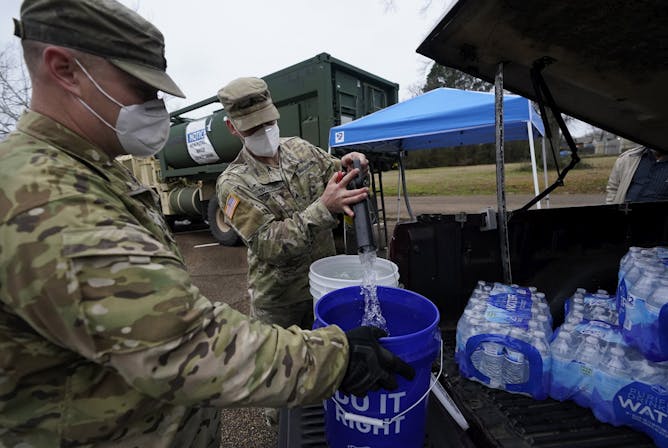
Stacked disasters – like a winter storm that damages a water system during a pandemic – can provide lessons for the next time around.
AP Photo/Rogelio V. Solis
Tiffany A. Radcliff, Texas A&M University; Angela Clendenin, Texas A&M University
Shoring up surveillance and response systems and learning lessons from how the COVID-19 pandemic unfolded will help the world be ready the next time around.
|
COVID-19
|
-
Deborah Fuller, University of Washington; Albert H. Titus, University at Buffalo; Nevan Krogan, University of California, San Francisco
The coronavirus pandemic has driven a lot of scientific progress in the past year. But just as some of the social changes are likely here to stay, so are some medical innovations.
-
David Chesire, University of Florida; Mark S. McIntosh, University of Florida
What if you passed COVID-19 to someone else? For those living with that guilt, the thought could be devastating.
-
Athena Aktipis, Arizona State University; Joe Alcock, University of New Mexico
SARS-CoV-2 is much like a zombie virus. It interferes with normal sickness behavior and blocks pain, turning its victims into unsick spreaders of the virus.
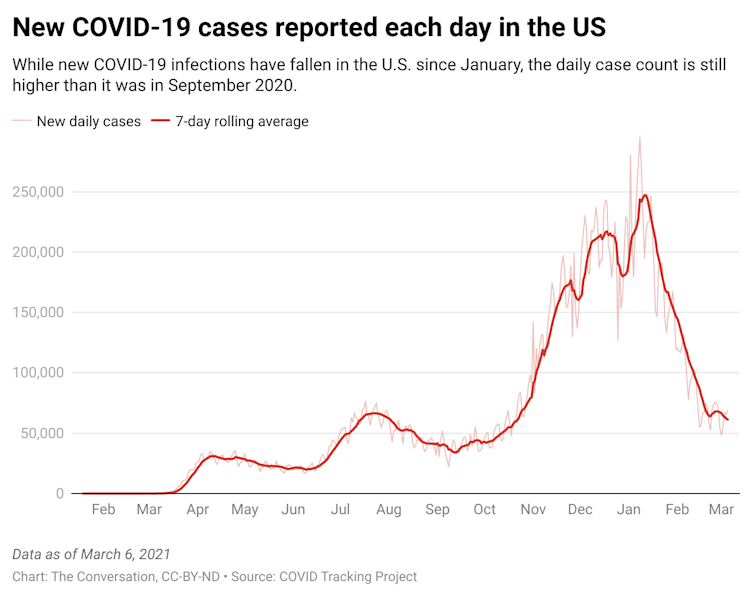
-
Elizabeth A. Regan, University of South Carolina
With outdated delivery systems at many hospitals and clinics, mistakes can lead to costly duplication of services and poor patient outcomes. But there are ways to fix the current system.
-
Maciej F. Boni, Penn State
The US was not ready for the coronavirus pandemic in 2020. What can public health leaders and policymakers do to make sure we don't face another winter of rampant disease?
-
Deborah Fuller, University of Washington
You've been vaccinated; can you now safely see your friends and family? New research hints that vaccinated people may be less likely to transmit the coronavirus, but they are not 100% in the clear.
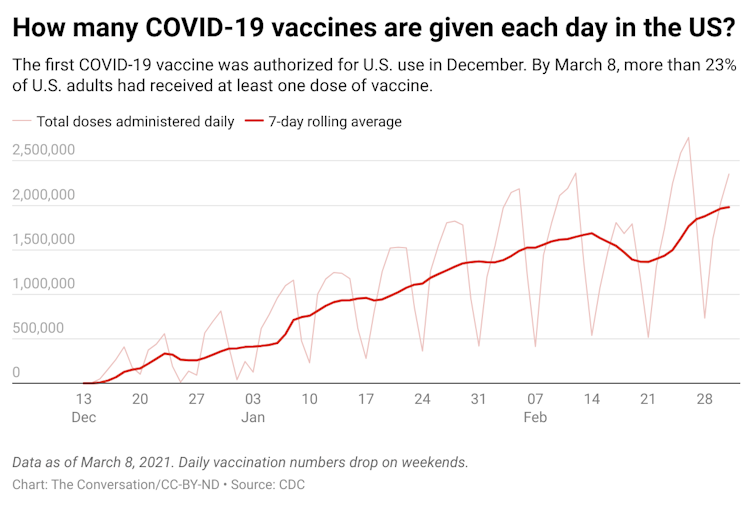
-
Tinglong Dai, Johns Hopkins University School of Nursing; Christopher S. Tang, University of California, Los Angeles; Ho-Yin Mak, University of Oxford
Religious opposition over a link to abortions performed decades ago and misunderstandings about effectiveness could lead to a nightmare of angry patients and wasted vaccine.
-
William G. Bain, University of Pittsburgh; Georgios D. Kitsios, University of Pittsburgh; Tomeka L. Suber, University of Pittsburgh
A year after it became clear that COVID-19 was becoming a pandemic, there is still no cure, but doctors have several innovative treatments. Some are keeping patients out of the hospital entirely.
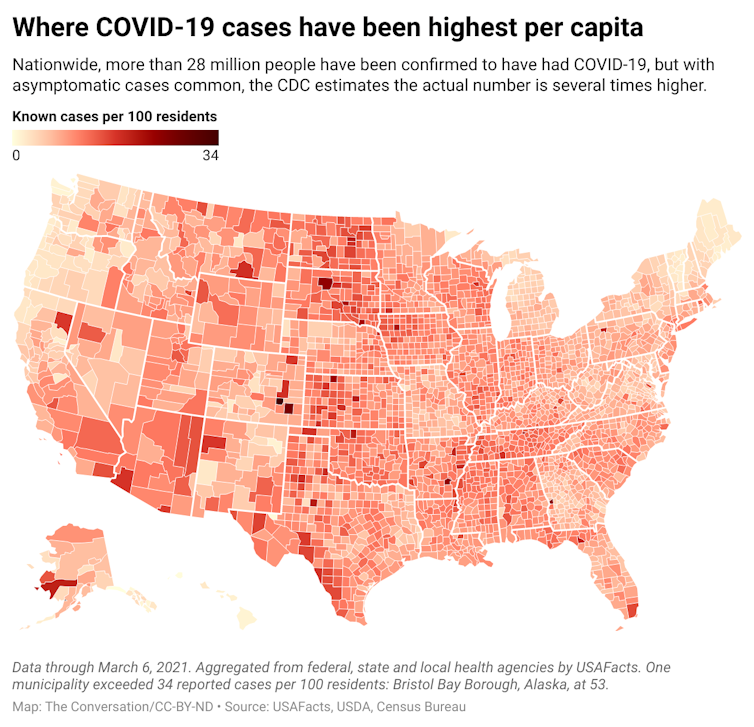
|
|